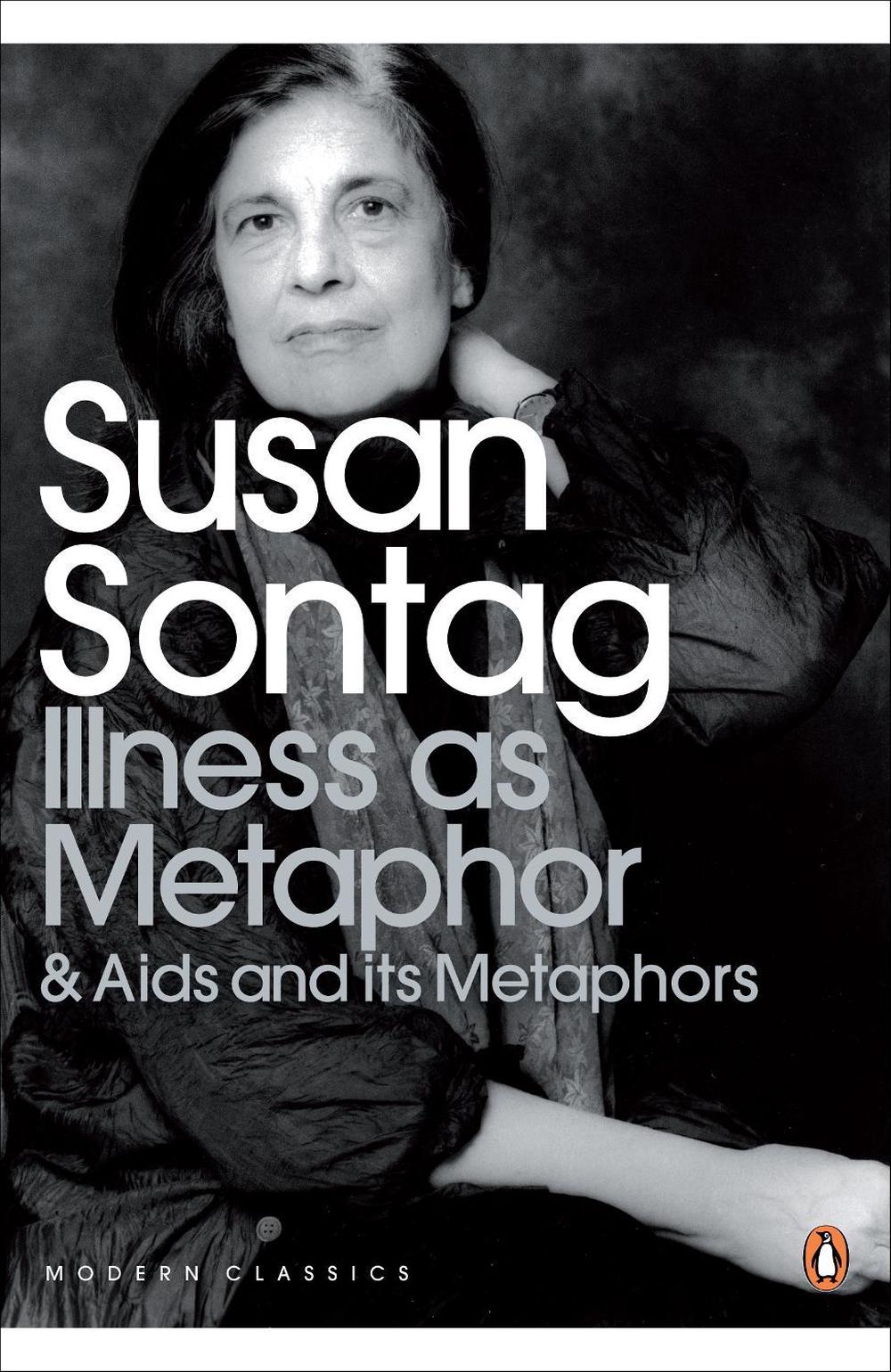
Illness as Metaphor and AIDS and Its Metaphors
$35.64
- Paperback
192 pages
- Release Date
19 March 2014
Summary
Demystifying Disease: Unmasking the Metaphors of Illness
In these groundbreaking studies, Sontag strips away the myths that surround the two most stigmatized diseases of our time.
Sontag wrote Illness as Metaphor in 1978, while suffering from breast cancer herself. In her study she reveals that the metaphors and myths surrounding certain illnesses, especially cancer, add greatly to the suffering of the patients and often inhibit them from seeking proper treatment. B…
Book Details
| ISBN-13: | 9780141187129 |
|---|---|
| ISBN-10: | 0141187123 |
| Author: | Susan Sontag |
| Publisher: | Penguin Books Ltd |
| Imprint: | Penguin Classics |
| Format: | Paperback |
| Number of Pages: | 192 |
| Release Date: | 19 March 2014 |
| Weight: | 145g |
| Dimensions: | 197mm x 128mm x 11mm |
| Series: | Penguin Modern Classics |
You Can Find This Book In
What They're Saying
Critics Review
“Susan Sontag’s “Illness as Metaphor “was the first to point out the accusatory side of the metaphors of empowerment that seek to enlist the patient’s will to resist disease. It is largely as a result of her work that the how-to health books avoid the blame-ridden term ‘cancer personality’ and speak more soothingly of ‘disease-producing lifestyles’ … “AIDS and Its Metaphors “extends her critique of cancer metaphors to the metaphors of dread surrounding the AIDS virus. Taken together, the two essays are an exemplary demonstration of the power of the intellect in the face of the lethal metaphors of fear.”–Michael Ignatieff, “The New Republic”“Susan Sontag’s “Illness as Metaphor was the first to point out the accusatory side of the metaphors of empowerment that seek to enlist the patient’s will to resist disease. It is largely as a result of her work that the how-to health books avoid the blame-ridden term ‘cancer personality’ and speak more soothingly of ‘disease-producing lifestyles’ … “AIDS and Its Metaphors extends her critique of cancer metaphors to the metaphors of dread surrounding the AIDS virus. Taken together, the two essays are an exemplary demonstration of the power of the intellect in the face of the lethal metaphors of fear.”–Michael Ignatieff, “The New Republic
About The Author
Susan Sontag
Susan Sontag was born in Manhattan in 1933 and studied at the universities of Chicago, Harvard and Oxford. Her non-fiction works include On Photography, Regarding the Pain of Others and At the Same Time. She was also the author of four novels, including The Volcano Lover and In America, as well as a collection of stories and several plays. She was awarded the Jerusalem Prize, and received the Prince of Asturias Prize for Literature and the Peace Prize of the German Book Trade. She died in December 2004.
Returns
This item is eligible for free returns within 30 days of delivery. See our returns policy for further details.




